From drinking tart cherry juice and supplementing with magnesium to setting up your bedroom, these clever hacks and tips for better sleep will help you find the best routine to get the best zzz’s of your life.
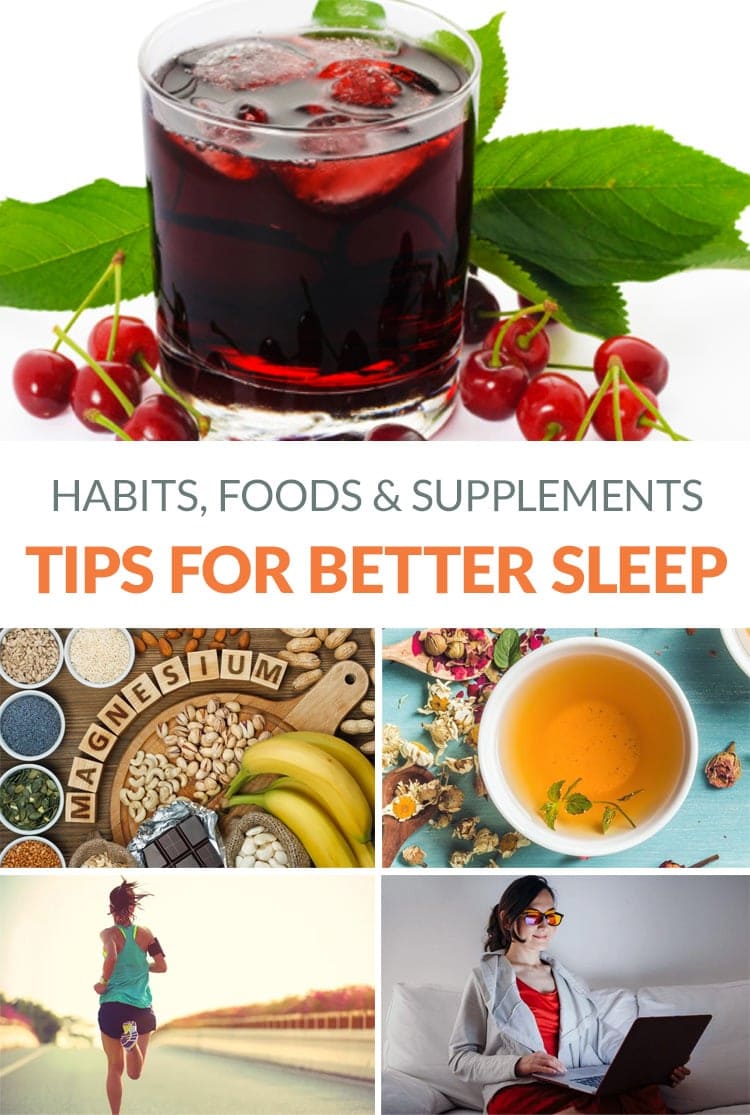
Today’s post on good sleep is actually a guest post from a health and wellbeing writer Adrienne Santos-Longhurst but of course, I had to add a few of my own tips on how to get more and better zzz’s. I hope you enjoy this post and I welcome your own tips and suggestions for getting better sleep.
The importance of sleep is bigger than you may realise. Sleeping, much like eating right and exercising, is something that we all know we need to do more of but don’t. For most of us, getting enough sleep feels like a luxury that we can’t afford and that’s not surprising given the hectic lives we lead.
Between work, school, and family responsibilities, it feels like there are just never enough hours in the day and we often put everything else ahead of sleep. Regardless of how busy you may be though, getting enough sleep needs to become a priority if you want to be able to make the most of the time that you do have, both in the day-to-day grind and long-term.
Personally, I’ve been trying to prioritise sleep for the past few years and get into a good night time routine. I’ve cut down on coffee (1 cup per day!) and I try to follow a rule of no laptops or phones in the bedroom.
How Sleep Affects Your Health
Aside from just feeling downright awful when we’re sleep deprived, not getting enough sleep has been linked to several serious health issues.
Sleep and Weight Gain
Studies have found several links between not getting enough sleep and weight gain. One found that people who often get less than six hours of sleep each night have a significantly higher body mass index (BMI) than those who regularly get eight hours or more.
When we sleep, our bodies secrete the hormones responsible for appetite control and the way our body metabolizes energy and processes blood sugar—something that insufficient sleep throws off. And, sleep deprivation also increases our cortisol levels which also lead to weight gain. In turn, this extra weight and the hormone imbalances we experience when we don’t sleep enough puts us at a higher risk of diabetes. And of course, obesity also raises our risk of heart disease, cancer, and more.
Sleep & Blood Pressure
According to the Division of Sleep Medicine at Harvard Medical School, even just one night of inadequate sleep can raise blood pressure the following day in those who already have hypertension. This is said to be one of the main reasons why poor sleep is linked to heart disease and stroke.
Sleep & Your Immune System
You know how your body seems to crave sleep and rest when you’re sick? There’s a good reason for it! When we are sick, our bodies produce chemicals that make us feel fatigued so that we sleep more because we’re better able to fight off infection when we sleep more.
Sleep & Life Expectancy
After what we’ve just read, it’s easy to see how insufficient sleep could cut our life expectancy down given that we’re upping our risk of disease. In 2010, researchers at the University of Warwick in the U.K. found a direct link between a lack of sleep and premature death.
Making the effort to get enough sleep will let you feel and function at your best and help you live better in every way. You can click here for more information on the health conditions discussed.
Tips For Better Sleep
It’s not just about getting enough sleep but also good sleep if you want to lower your risk of chronic disease and feel your best. If you feel that your ability to get a good night’s sleep is compromised, then you might want to consider speaking to your doctor since there are several medical conditions that can be interfering with your sleep without you even knowing, such as acid reflux and sleep apnea. A sleep disorder may also be to blame for your inability to sleep well or even get to sleep at all some nights, including night terrors, restless leg syndrome, or insomnia.
Along with ruling out any possible underlying medical issues, the following recommendations from the National Sleep Foundation may help you get a better night’s sleep.
Go to bed at the same time every night, including weekends. This helps to regulate your body’s clock. If you always wake up early in the morning, make sure to get to bed early so you can get 7-8 hours of sleep.
Do something relaxing before bed every night. Choose something that can be done away from bright lights that let you separate your sleep time from life’s everyday stressors and help you wind down before bed. Reading a book, taking a bath or simply pottering around the house are good options.
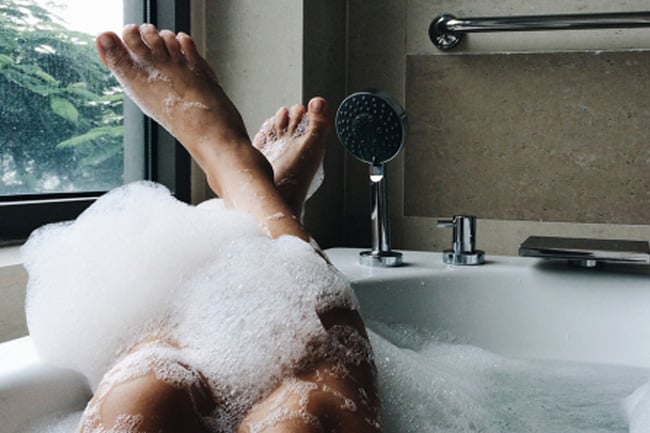
Exercise. Getting daily exercise has been proven to improve sleep and lower stress levels. Just be sure to not exercise right before bed or lose sleep in order to work out!
Make your room ideal for sleeping. Keep your bedroom a little cool—ideally between 15-18 C/60-70 F—and as quiet as possible even if it means using earplugs to drown out your partner’s snoring. Keeping it dark is also recommended. You can do this with blackout curtains or shades or even eye shades.
Avoid napping during the day. Naps may not affect everyone the same way, but if you are having trouble getting to sleep or staying asleep at night then refraining from napping may be the key.
Even More Sleep Tips
Drinking tart cherry juice twice a day has been found to improve sleep, especially in those suffering from insomnia. This study found that the naturally occurring melatonin together with the red pigments in the tart cherry juice, known as proanthocyanidins, are most likely responsible for increasing the test subjects’ sleep by nearly 90 minutes and making their sleep more efficient.

Get enough iron. If you suffer from a constant urge to move your legs in the night, which is often accompanied by a tingling sensation and can disrupt your sleep, check that you don’t have a shortage of iron.
Get enough magnesium and calcium. Chronic insomnia is one of the central symptoms of magnesium deficiency. Magnesium and calcium both help to calm the body and relax the muscles, and a lack of these minerals may cause you to wake up after a few hours and make it hard to get back to sleep. Plus, calcium helps your brain to use the amino acid tryptophan to manufacture the sleep-inducing melatonin. This explains why a glass of milk is often recommended before bed.
Magnesium-rich foods include spinach, nuts, bananas, nuts, seeds and fish, while calcium can be found in oily fish and seafood, leafy green vegetables, dried fruit, dried herbs, rhubarb, sesame seeds and dairy of course, for those who can tolerate it.
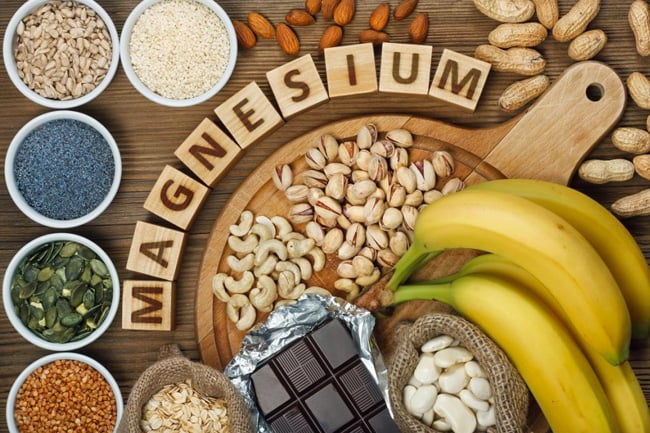
Eating before bed. Eating too much or too late can interfere with sleep as your body will be busy digesting. It’s recommended to eat at least 3 hours before going to bed. Some of the food you might want to avoid eating before bed includes high amounts of starchy, refined and sugary foods as they can stress your body. Foods such as pork, cheese, chocolate, eggplant, tomatoes, potatoes and wine are rich in an amino acid called tyramine, which the body converts to noradrenaline, brain stimulants, so try to avoid those near bed time as well.
Avoid too much alcohol before bed. Although a glass of wine can help you relax at night, too much alcohol can decrease the deep sleep (REM sleep) we need. It causes blood sugar levels to drop so you may wake up in the middle of the night, disrupting the body’s natural rhythms. Plus alcohol is dehydrating, so you’re likely to wake up from thirst.
Avoid smoking. There are lots of reasons to avoid smoking but for one, nicotine is a stimulant, making it harder for smokers to fall asleep and to sleep well.
Avoid caffeine after 2 pm. This includes coffee, black or green tea and dark chocolate. Avoiding coffee? Learn how to deal with caffeine withdrawal symptoms here.
Avoid drinking too much liquid before bed. Nature calls in the middle of the night will disturb your sleep and often it will take a long time to get back into a deep sleep. Try to hydrate as much as possible before dinner and make a loo stop just before bed. If you have been drinking a lot before bed, make sure to visit the bathroom just before bed time.
Avoid laptop and phone screens for about an hour before bed. The blue light of the screen will fool your body into thinking it’s time to be awake. If you must look at the screen just before bed, dim its brightness as much as possible. Check out F.lux app for your laptop, which will make the colour of your computer display adapt to the time of the day – warm at night and sunlight like by day. Otherwise, check out this round up of 10 apps for dimming your laptop and phone screen. Light blocking glasses are also a great idea.

Avoid to-do lists and stressful tasks before bed. Try to get your errands and important tasks done at least an hour before bed, otherwise, you risk lying in bed thinking about all the things you have to do or dream in spreadsheets and bullet points.
Try relaxing with herbal teas such as chamomile, valerian, lavender and lemon balm to help you settle into that soft pillow. I love Sleepy Time tea.
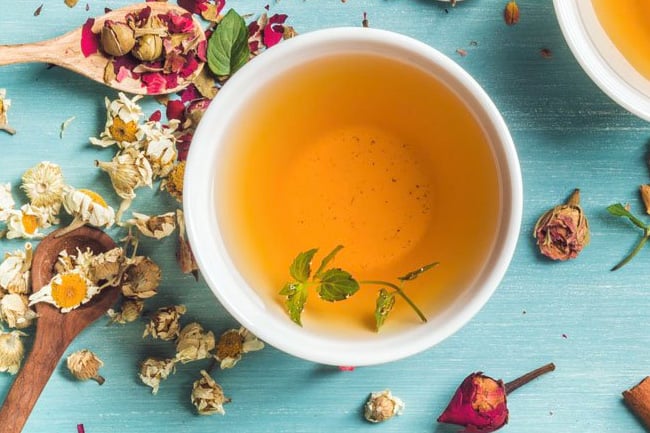
Dub a few drops of lavender oil on your pillow or in your pre-bed bathtub.
Adrienne is a freelance writer and author who has written extensively on all things health and fitness for more than a decade. When she’s not holed-up in her writing shed researching an article or off interviewing health professionals, she can be found frolicking around her beach town with husband and dogs in tow or splashing about the lake trying to master the stand-up paddleboard. You can connect with Adrienne on Facebook.
References
- Sleep and Disease Risk. (Decemeber 2007). Division of Sleep Medicine at Harvard Medical School. Retrieved May 7, 2014, from http://healthysleep.med.harvard.edu/healthy/matters/consequences/sleep-and-disease-risk
- Sleep Deprivation Could Equal Shortened Life Span. (May 2010). Sleep Better. Retrieved May 7, 2014, from http://sleepbetter.org/sleep-deprivation-could-equal-shortened-life-span/
- Your Guide to Healthy Sleep. (August 2011). National Heart, Lung and Blood Institute (NHLBI). Retrieved May 7, 2014, from http://www.nhlbi.nih.gov/health/public/sleep/healthy_sleep.pdf
- Healthy Sleep Tips. National Sleep Foundation. Retrieved May 7, 2014, from http://sleepfoundation.org/sleep-tools-tips/healthy-sleep-tips/





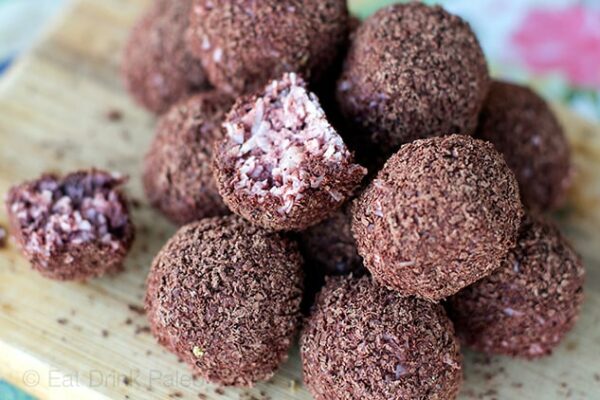
For the tart cherry juice, how much do you need to drink?
1/4 cup to 1/2 cup twice a day is what I’ve read
I have sleeping difficulties and know it’s for all these reasons! Inspired to do something about it. LOVE cherry juice. Will make it a budget priority! Thanks!
You say ‘tart’ cherry juice, as opposed to sweet cherry juice I assume? Can I buy from the supermarket? Thanks
Maybe not from every regular supermarket but I have seen it in green grocers, also health food stores might stock it. And yes, I believe the research highlights tart cherry juice specifically but I am sure that regular sweet cherry juice (being of the same family) would have similar compounds but maybe not in the same concentration.
Nice work and good post
Magnesium is pivotal in triggering the relaxation pathways in the body. One reason for this is that magnesium aids in gamma-aminobutyric acid (GABA) production, the neurotransmitter that soothes the nervous system and promotes sleep. Thus, a lack of magnesium can lead to sleep problems. Balance is vital as overconsumption of magnesium can also be detrimental to health.
Can I take tart cherry juice and magnesium together
Yes, you can.